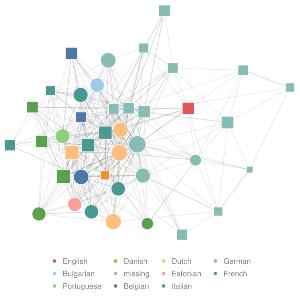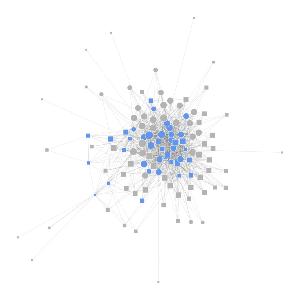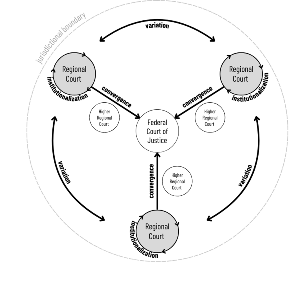UNIFIED: From local diversity to transnational institutionalization
The emergence of the European Unified Patent Court
The emergence of the European Unified Patent Court

© Jakob Hoffmann
Although the European patent for the protection of intellectual property was introduced in 1973, it took 50 years until, after many delays, a uniform jurisdiction for the enforcement of intellectual property rights at European level began its work in June 2023. The French-German research project UNIFIED focused on the question of how a harmonized jurisdiction could emerge from the merging of different national legal systems. The project, carried out in cooperation with SciencesPo, focused on aspects of institutional convergence between different intellectual property regimes and on the emergence of a new transnational institution: the Unified Patent Court (UPC). The project pursued the objectives (i) to analyze the variation in legal practices, (ii) to discern the mechanisms of convergence of institutionalized legal practices, and (iii) to develop a relational model of transnational institutionalization. In this way, UNIFIED was intended to overcome the conceptual gap between structure and meaning by interweaving institutional and network theories in a relational (Glückler & Panitz, 2021) or neo-structural approach (Lazega, 2018).

© Jakob Hoffmann
As the establishment of the UPC was delayed until 2023, the Munich team initially focused on Germany due to the federal diversity of German patent jurisdiction, while the Paris team explored the specific context of the French jurisdiction. The empirical research in Germany is based on semi-structured interviews with judges, patent attorneys and other experts, statistical analyses of decisions of the Federal Patent Court (BPatG), and network analyses of judgment citations. Finally, a network survey of appointed UPC judges was conducted at the end of 2024, revealing a unique insight into the structure of cooperation and the network of judicial deliberation of an emerging transnational institution. Since their appointment to the UPC, the judges have quadrupled the density of their network of contacts. The number of contacts increased from 2.5 (before the appointment) to 9.2 relationships after the appointment. The implementation of training courses and conferences as well as the composition of the adjudicatory chambers with different nationalities thus have a clear effect with regard to the orientation of the judges towards the eventual convergence of judicial beliefs and practices at the UPC.

© Marius Zipf
Empircal results inform a model of transnational institutionalization in which mechanisms of variation and convergence operate simultaneously. In addition to the appelate process, judicial beliefs serve as a crucial convergence mechanism. Judicial beliefs are formed and enforced via informal deliberation networks, profesional events, legal commentary and by citing precedents. The UPC comprises 20 courts of first instance in many of the 18 EU member states as well as a central court of appeal in Luxembourg. It therefore faces the challenge of ensuring uniform and reliable European case law. Due to the multinational composition of the panels with over 100 judges from different European legal cultures, this task is significantly more challenging than in the federal context of Germany. The UPC will therefore depend on organizing temporary co-presence and dense deliberation networks between the judges in order to ensure consistent case law. In the context of a continuous tension between variation and harmonization, the UPC offers the opportunity to establish improved dispute resolution models through a Europe-wide learning process of successive decisions.
Glückler J, Zipf M, & Hoffmann J. (2025) Von lokaler Vielfalt zu transnationaler Institutionalisierung: Die Entstehung des Einheitlichen Patentgerichts in Europa. SSOAR Social Science Open Access Repository
Zipf M, Glückler J, Khuchua T, Lazega E, Lachapelle F, Hoffmann J (2023) The judicial geography of patent litigation in Germany: implications for the institutionalization of the European Unified Patent Court. Social Sciences 12(5): 311.
Hoffmann J, Glückler J, Lazega E, Zipf M (2024) Legalist and realist decision-making in patent law: validity cases in Germany. SocArXiv, p354r, Center for Open Science. (Under review)
Zipf M, Glückler J, Lazega, E, Hoffmann J (2025) From divergence to convergence: Judicial beliefs and the geography of patent law. Geoforum 166, 104427
Glückler J, Zipf M (2025) Freedom to operate: a comprehensive approach to IP management practices. (Under review)

Chair for Economic Geographies of the Future
Economic Geography; Geographies of Knowledge; Networks; Institutions; Governance